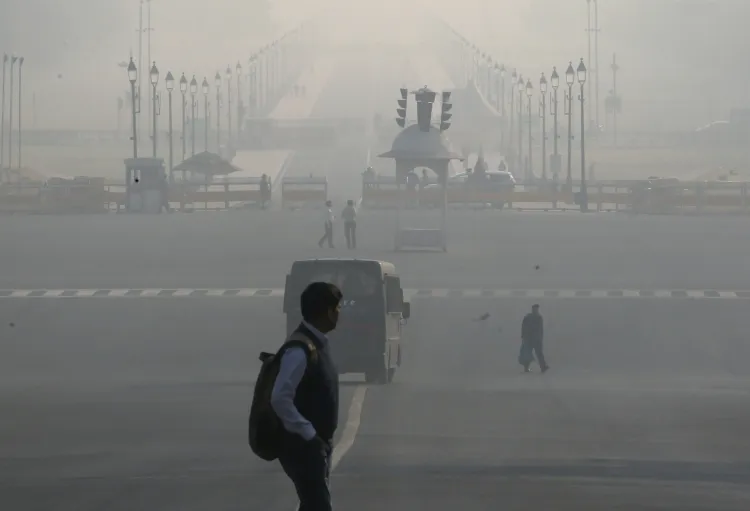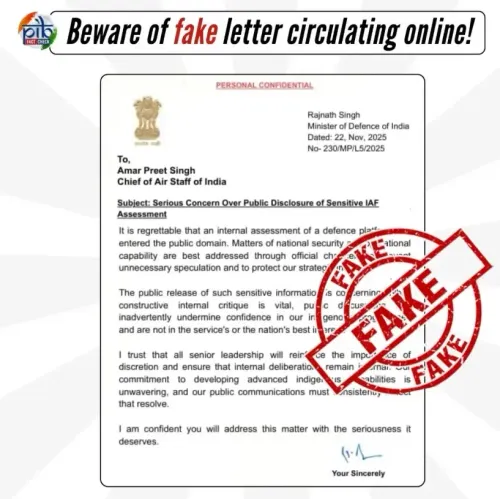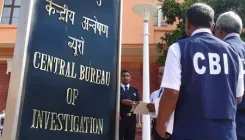Could Ash from Ethiopian Volcano Affect Delhi’s Air Quality?

Synopsis
Key Takeaways
- Delhi is currently facing severe air pollution exacerbated by volcanic ash from Ethiopia.
- The ash plume can introduce harmful particles into the air.
- Respiratory health risks are heightened, especially for vulnerable groups.
- Authorities need to treat the air quality situation as an emergency.
- Long-term exposure to poor air quality can lead to serious health issues.
New Delhi, Nov 25 (NationPress) While Delhi has been grappling with severe air pollution for a month, the ash released from an erupting volcano in Ethiopia poses a new threat to the air quality of the national capital, raising alarming health issues, according to health professionals here on Tuesday.
The air quality in Delhi-NCR remains in the ‘very poor’ category, with a dense layer of haze shrouding the area, as reported by the Central Pollution Control Board.
This dire situation may worsen due to the eruption of the Hayli Gubbi volcano in the Afar region of Ethiopia, which erupted for the first time in thousands of years.
The volcano emitted a significant ash column reaching approximately 10-15 km into the sky, with plumes drifting towards Yemen and Oman before heading towards India.
Traveling at speeds of around 100-120 km/h at high altitudes, this ash plume made its way to Delhi and then continued over Gujarat, Rajasthan, Maharashtra, Punjab, and Haryana.
As per the latest report from the India Meteorological Department (IMD), the ash plume is predicted to move towards China next and is anticipated to exit India by 7:30 PM local time.
“The volcanic ash from Ethiopia could potentially worsen the air quality in Delhi by introducing fine particles and harmful metals,” stated Dr. Abhishek Shankar, Assistant Professor in Radiation Oncology at the All India Institute of Medical Sciences (AIIMS), Delhi, in an interview with IANS.
“These ultrafine particles can penetrate deep into the lungs, worsening respiratory conditions, triggering asthma, and increasing risks for vulnerable groups like children, the elderly, and cancer patients, thus amplifying the city’s already critical pollution-related health challenges,” he elaborated.
The deteriorating air quality has led to significant health problems for residents of Delhi, including watery eyes, asthma symptoms, itchy skin, and throat discomfort.
Prolonged exposure could result in more severe health issues, such as chronic coughing, chest tightness, wheezing, and shortness of breath.
“Air pollution affects every part of the body. Our respiratory system is primarily at risk - nose, ears, throat, and lungs - due to their direct exposure to the air. This leads to various respiratory diseases,” remarked Dr. Anant Mohan, Professor & Head of the Department of Pulmonary Medicine and Sleep Disorders at AIIMS Delhi, in an interview with IANS.
“All organs, from the brain to the heart and blood vessels, can be impacted, making everyone susceptible to heart attacks or strokes,” he further emphasized.
The expert highlighted that poor air quality levels can affect even small children and unborn babies. “No age group is exempt from this issue. Every organ is at risk,” he mentioned, categorizing the poor air quality in the national capital as an “emergency”.
Shankar pointed out that air pollution is increasingly recognized as a significant cancer risk factor, with established links to lung cancer and breast cancer.
“A growing number of lung cancer cases among non-smoking women and young adults are largely attributed to air pollution, especially Particulate Matter (PM) 2.5. In addition to increasing lung cancer risks, air pollution also affects treatment outcomes, although there is limited data from India on this issue,” the expert concluded.
Continuous exposure to hazardous air triggers inflammation, oxidative stress, and DNA damage, paving the way for cancer development.









